It's all about the classical music composers and their works from the last 400 years and much more about music. Hier erfahren Sie alles über die klassischen Komponisten und ihre Meisterwerke der letzten vierhundert Jahre und vieles mehr über Klassische Musik.
Total Pageviews
Friday, February 10, 2023
Piano Duel - Yuja Wang vs. Khatia Buniatishvili
Franz Lehár - Adria Walzer (Adria Waltz)
Thursday, February 9, 2023
Bacharach Medley - Gimnazija Kranj Symphony Orchestra and Choirs
In Memory of Burt Bacharach
12-year-old Ukrainian refugee lands a place studying piano at the Junior Royal Academy of Music
By Sophia Alexandra Hall, Classic FM
@sophiassocialsAfter fleeing her home country last year, Ukrainian refugee Kateryna Pyshniuk is now studying on a full scholarship at the UK’s oldest conservatoire.
A 12-year-old Ukrainian refugee has said that getting a scholarship to the Royal Academy of Music was “like the best birthday present I could ever imagine”.
Kateryna Pyshniuk fled her home country with her mother, Anna, in April last year. At the time, she was a student at the Kyiv Lysenko State Music Lyceum, one of Ukraine’s top specialist music schools, studying piano.
But when the war broke out, she stopped practising due to everything going on around her.
“In Ukraine, it was so hard to forget for even two minutes about all the bad and dangerous things going on around me,” Kateryna told Classic FM.
After spending some time in Slovakia, Kateryna and her mother were able to acquire UK visas. And within three weeks of arriving, the talented young pianist had secured a full scholarship place at the prestigious Royal Academy of Music’s junior department.
“She is jaw-droppingly good”
After attaining her place at the Academy, Kateryna also successfully auditioned for a full scholarship to Bristol private school, Clifton College.
The school’s head of music, Daniel Robson, told Classic FM that Kateryna is “jaw-droppingly good” and “absolutely amazing for her age”.
After listening to her play her first audition piece, in the summer of 2022, Robson left the audition room to fetch the school’s headmaster, telling them, “you have to hear this musician”.
The young pianist now also receives piano lessons at school, plays in a school string trio, and has vocal lessons with the head of music.
Alongside her studies at Clifton College and the Academy, Kateryna does a virtual Ukrainian school in the evenings, and finds time to practise between three and four hours a day on weekdays, and five hours on a Sunday.
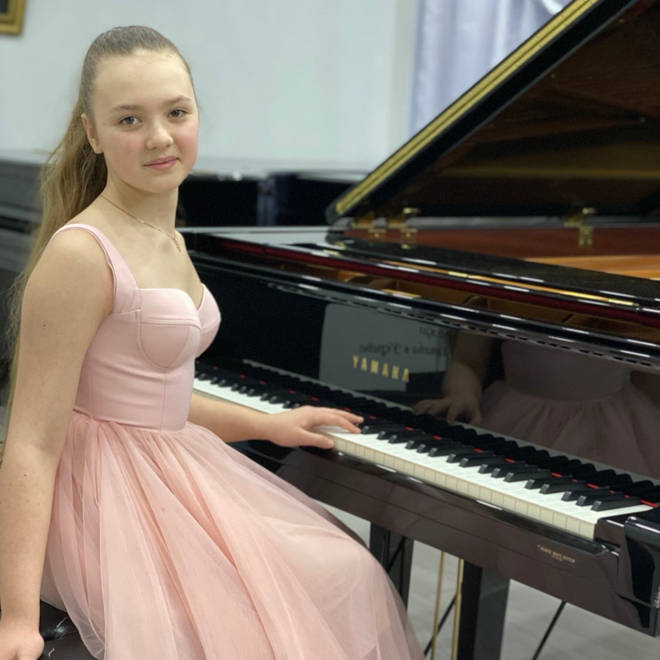
“When she started playing, the room just fell silent”
When Kateryna arrived in the UK, her host family at the time suggested she audition for the prestigious junior programme.
While it is usually highly unlikely that junior conservatoire programmes in the UK will take on new pupils during the school year, Kateryna had an exception made for her due to the circumstances.
John Hutchins, director of the Junior Academy, recalled the day Kateryna came down for her audition – coincidentally, the day of the pianist’s 12th birthday.
“I like to be in every audition,” Hutchins said, “and Kateryna’s face just lit up when I took her into a room with two grand pianos – she couldn’t believe she actually had the choice of which one to play. When she started playing, the room just fell silent.”
After her standout audition, Kateryna was awarded a scholarship on the spot. The Royal Academy of Music’s junior programme has nearly 500 students, and has trained some of the UK’s greatest musicians, including Sheku Kanneh-Mason, Jacob Collier, and Elton John.
Around 70 percent of students on the junior programme will go on to study music at conservatoire or university following their time on the junior programme.
“I owe everything to my piano teacher”
At the Kyiv Lysenko State Music Lyceum, where Kateryna was studying when the war broke out, she took lessons with piano professor, Maryna Savchenko.
“I owe everything to my piano teacher,” the young musician said of Savchenko. “She was a really important part of my musical and piano life; she will truly remain in my heart always”.
Kateryna is one of over five million people who have been displaced from their homes into Europe since the war in Ukraine began in February 2022.
Before she managed to flee her home country, the young pianist recalls her home being damaged so badly that playing the piano was almost impossible, as the instrument was in a room so cold, “it felt like I was playing on ice”.
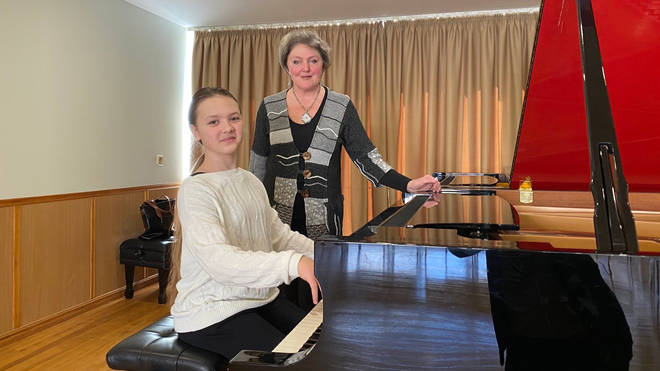
Kateryna’s place at the Academy has been funded by the conservatoire’s Ukraine Response Fund, a fund available to students of all ages that was set up to support students impact by the conflict.
A spokesperson for the Royal Academy of Music said they “wanted to ensure that talented musicians impacted by the conflict who needed a way to continue their musical education could come and study with us in London”.
“In some cases, we’ve been able to offer early admission to provide some sanctuary and protection to students who have been forced to flee their home country.
“We have also supported a number of younger Ukrainian students who were in the UK to train with Junior Academy. This includes supporting with tuition fees and travel costs, helping them to access the best training.”
Kateryna, who has now been a student at the Academy for over half a year, told Classic FM that she sees her scholarship “as a present from the people of England to me”.
Wednesday, February 8, 2023
Music of the Night
Yuja Wang: Gershwin Rhapsody in Blue [HD]
The Impossible Virtuosity of Yuja Wang
Monday, February 6, 2023
Love is in the Air - Gimnazija Kranj Symphony Orchestra
Theme to Exodus / London Pops Orchestra
Sunday, February 5, 2023
Jean Sibelius - Finlandia
Saturday, February 4, 2023
Friday, February 3, 2023
"You Don't Bring Me Flowers" A one of a kind rendition
The Lure of Light Music
by Maureen Buja, Interlude
A work such as a movement from Richard Rodney Bennett’s The Aviary, gives us a key to the genre: simple, melodic, and engaging.
Malcolm Arnold’s sets of English Dances, created at the invitation of his publisher who wanted a response to Antonín Dvořák’s Slavonic Dances. Jollity mixes with melancholy here, and at the same time, is capable of brash brass statements, as in No. 4 of the first set of English Dances. When the BBC used this as the theme for a radio program, people phoned in to find out about that intriguing piece they’d just heard.
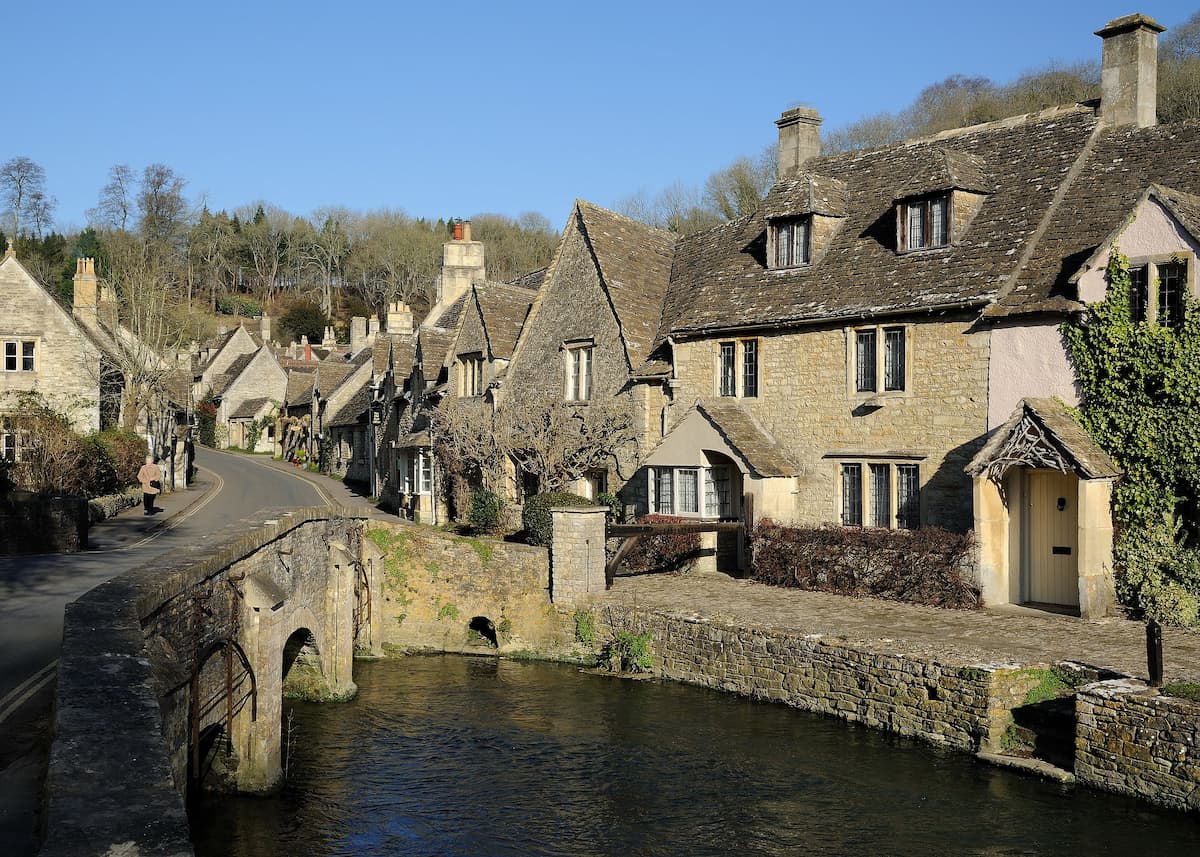
Saffron Blaze: Castle Combe, Cotswold
Folk dances figure largely in this genre, not only for their emphasis on melody and rhythm but also because they have a local familiarity, even when they’re new to the listener. Philip Lane’s Suite of Cotswold Dances, which takes its name from a second of central-southwest England, carries the designation of an Area of Outstanding Natural Beauty.
Many of the great British composers of Light Music had careers in the film and television business and so much of the familiarity we have with their music comes not from the concert stage but the glowing screens in our living rooms, such as the music of Geoffrey Burgon. The name may be unfamiliar, but the melodies aren’t. The music for the BBC series Brideshead Revisited is an excellent example of the evocation of an England of the past in a 1981 piece of music.
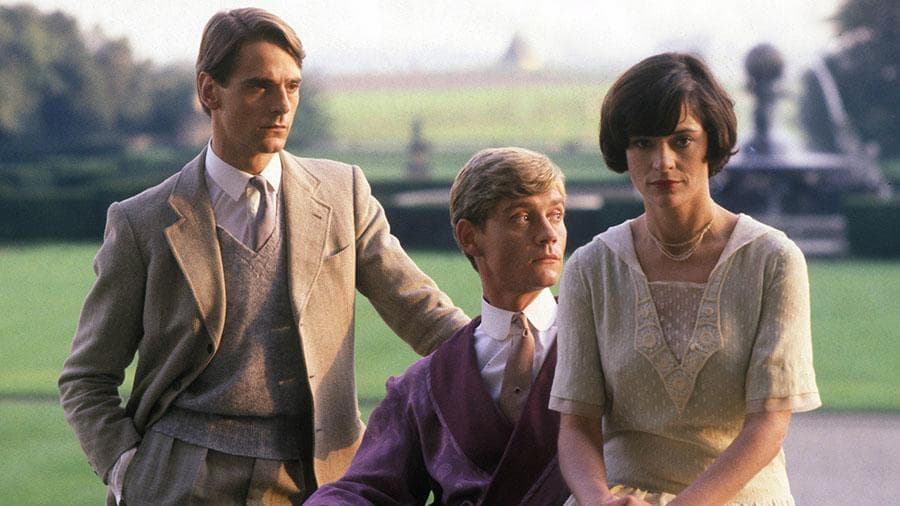
Brideshead Revisited , Jeremy Irons (Chales Ryder), Antony Andrews (Sebastian Flyte), and Diana Quick (Julia Flyte), 1981
A similar theme was used for the Miss Marple films in the 1960s, and reused for the television series in 1985 with Joan Hickson. The composer, Ron Goodwin, is probably better known for his film scores for movies such as Where Eagles Dare, Force 10 from Navarone, Those Magnificent Men in their Flying Machines, Of Human Bondage, and Hitchcock’s Frenzy.
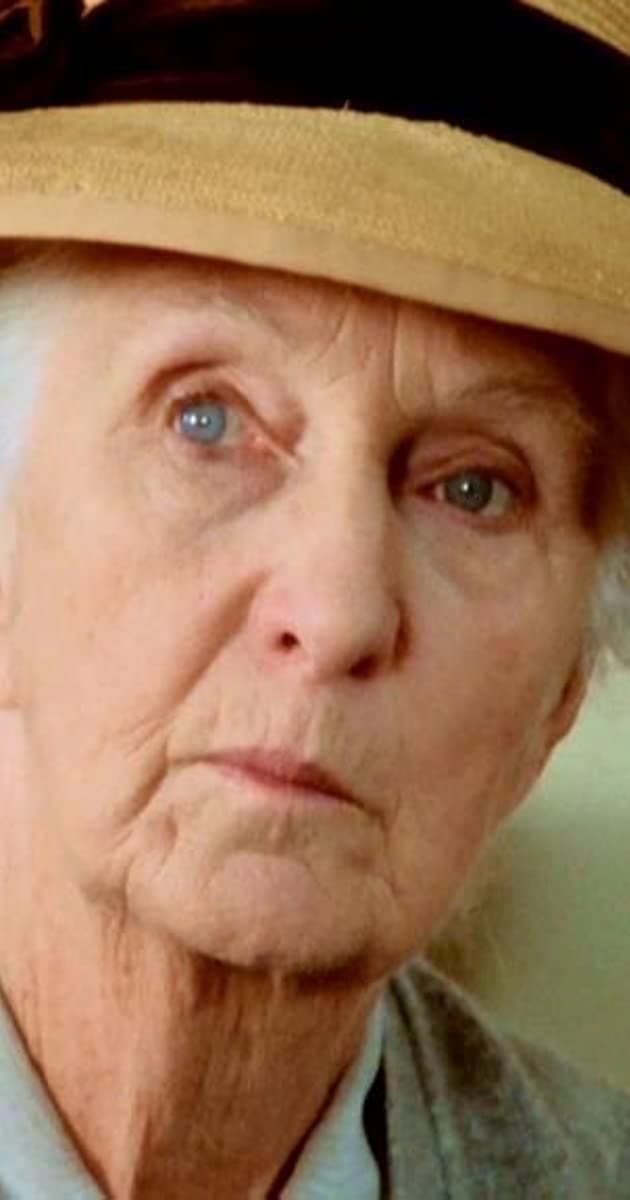
Joan Hickson as Miss Marple
Eric Coates made his name with his Knightsbridge march, but it was By the Sleepy Lagoon, written in 1930, that gave him long-lasting fame. This slow waltz for orchestra was discovered and lyrics were set to it (with the composer’s permission) it became a popular music hit for Glenn Miller, trumpeter Harry James, and singer Diana Shore. It also has been the theme for BBC Radio 4’s Desert Island Discs in 1942.
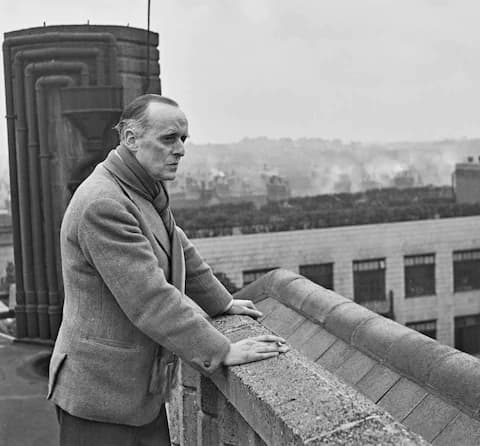
Eric Coates
Another side of light music is humour. For the 1956 Hoffhung Music Festival, Malcolm Arnold wrote A Grand Grand Festival Overture, but the 4 soloists are not on the typical musical instruments but perform on 3 vacuum cleaners and a floor polisher.
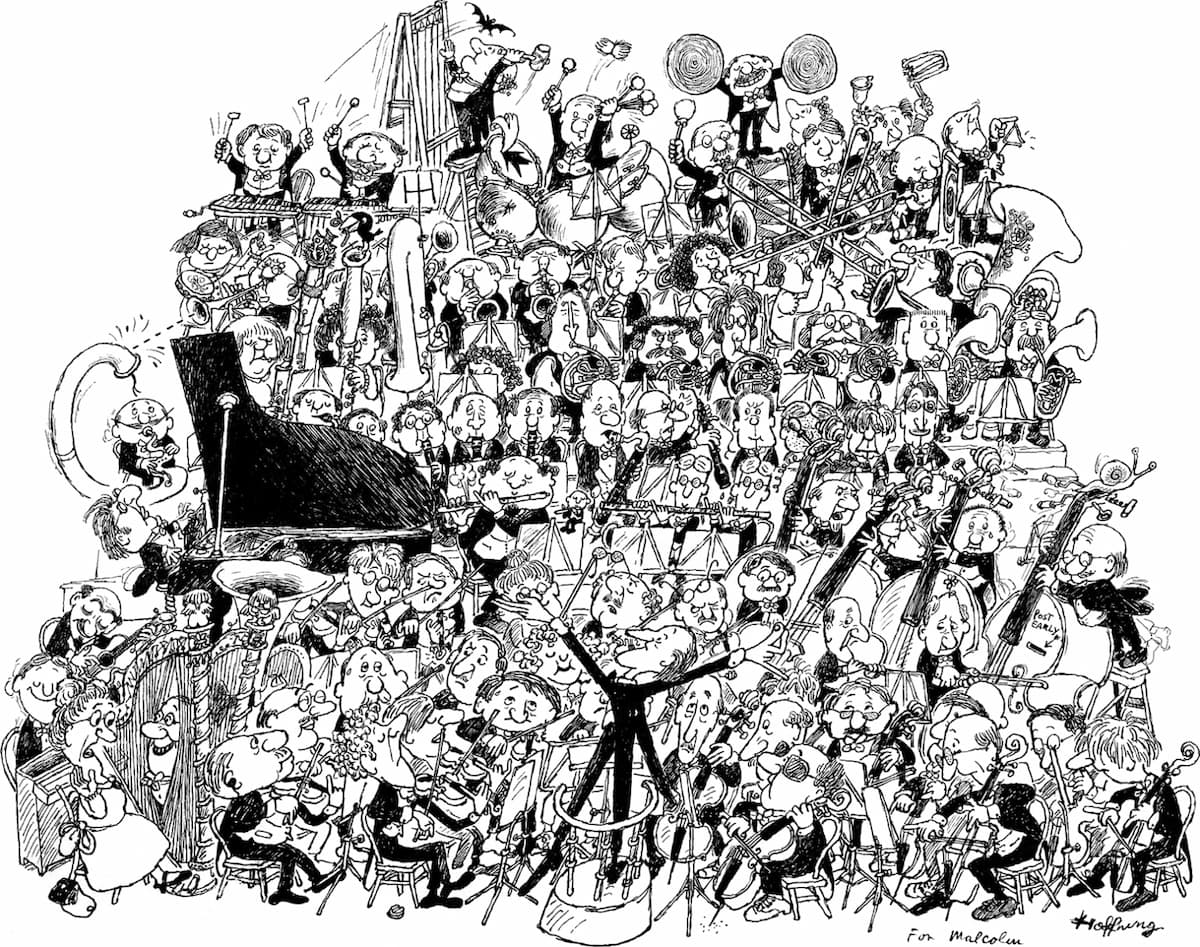
Gerard Hoffnung: The Hoffnung Symphony Orchestra
Gordon Jacob made free with the music of Rossini in his 1960 overture The Barber of Seville Goes to the Devil.
The heyday of Light Music really happened in the mid-20th century. It was such a popular subgenre of classical music that the BBC even had an entire radio channel, the BBC Light Programme, for this music that ran from 1945 to 1967, whereupon it was replaced with BBC Radio 2 (older pop music) and BBC Radio 1 (current pop music). Ease of access seems to have fallen to the self-importance of modern music but it’s all still fun to listen to!


